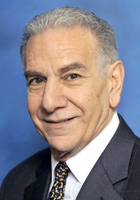
It’s a scene at plays out all too often in hospitals across the United States. A stroke leaves a frail senior incapacitated, lying in a hospital bed. Family members gather around, but no one can say for sure what their relative wants for her end-of-life care, and no advance directive or healthcare power of attorney is on file for her.
A survey last year by the Pew Research Center shows how common it is for Americans to neglect to plan for end-of-life care. More than a quarter of U.S. adults said they have given “not very much/no thought” to their wishes for end-of-life care. Only 35% said they have written down their wishes, and only 62% said they have discussed their wishes with someone.
Without planning ahead, families and doctors feel compelled into “doing all they can” for the patient. Yet, clinical studies show that very little of the care offered to patients in their last months of life helps them. Many of the interventions are actually harmful.
CenterLight Health System, based in the Bronx, N.Y., is addressing these problems with a comprehensive outpatient supportive care program launched last September. We have 4,000 members and so far have provided supportive care to 15% of them.
Supportive care includes palliative care and end of life care. Palliative care has traditionally been viewed as merely a bridge to hospice care. CenterLight’s approach to supportive care begins by evaluating patients whenever possible before they have a chronic debilitating or life threatening disease. Supportive care is another element of CenterLight’s focus on delivering services to its members in their communities so they can remain safe at home.
Under CenterLight’s Program for All-Inclusive Care for the Elderly (PACE), every member will be evaluated by the supportive care team, and then re-evaluated every six months, or when a change in their health status occurs, such as a new diagnosis or a hospitalization. CenterLight is the largest PACE provider in the country, according to the National PACE Association, with nearly 4,000 patients enrolled.
Through an assessment tool the supportive care team has developed and is now piloting, CenterLight clinicians learn about the patient’s personality, values, goals and spiritual and emotional issues. We also learn about the way the patient makes decisions, the family and social supports the patient has in his or her life and the patient’s health literacy.
The key to making supportive care a success is having those conversations early so we can learn about the patient while he or she can still participate in a meaningful way in the conversations. Traditionally, patients and families have avoided facing these questions head on, leaving clinicians and family members to struggle to determine what the patient wants only after the patient has taken a turn for the worse.
CenterLight professionals also work with members to set up a healthcare proxy who will be responsible for ensuring the patient receives the care they wish to receive should they be afflicted with a terminal or chronic debilitating condition. Patients and their families are educated about all of their health care options, and the supportive care team can assist with determining their goals based on the patient’s values. Again, these conversations take place while the patient is still able to communicate his wishes.
A major advantage of this approach is continuity of care. When a Medicare patient opts for hospice care, the patient must disenroll from her current health plan, e.g., Medicare fee-for-service or Medicare Advantage. With PACE, as an all-inclusive managed care plan, supportive care is offered alongside the other health services members need.
By focusing on getting to know the member as an individual and learning his or her wishes before there is a problem, CenterLight’s outpatient supportive care program is changing the paradigm for how to approach end-of-life care and delivering increased peace of mind to our members and their families.
Stephan Deutsch, M.D., is Chief Medical Officer of CenterLight Health System, Bronx, N.Y.



